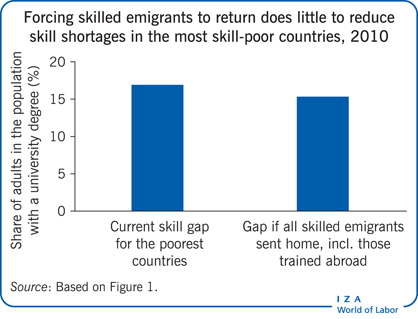Elevator pitch
Immigration officials in rich countries are being asked to become overseas development officials, charged with preventing skilled workers from leaving poor countries, where their skills are needed. Some advocates urge restrictions or taxes on the emigration of doctors and engineers from developing countries. Others urge incentives to encourage skilled workers to remain or return home or policies to facilitate their interactions with home countries. Regulations often reflect compassionate and political sentiments without clear evidence that the regulations achieve the desired development goals and avoid pernicious side effects.

Key findings
Pros
Retention and return incentives in origin countries have shown promise to increase stocks of skilled workers in developing countries.
Bilateral agreements to share the financing and provision of training for skilled emigrants show some potential.
Experiments around the world with diaspora-engagement policies offer a variety of experiences to learn from.
Policies that focus on equitably sharing skilled migrants’ training costs can address fiscal issues while preserving worker mobility.
Cons
Restrictions on high-skill emigration do not address the main causes of skill shortages and have not been shown to reduce shortages in the countries of origin.
Emigration restrictions greatly harm skilled workers, discourage skill acquisition, and limit access to technology, trade, and investment.
There has been little rigorous evaluation to determine the effects of diaspora-engagement policy on technology transfer or investment.
Transfers to developing countries to compensate for emigrants’ training costs face problems of aid fungibility and are not shown to increase skill stocks.